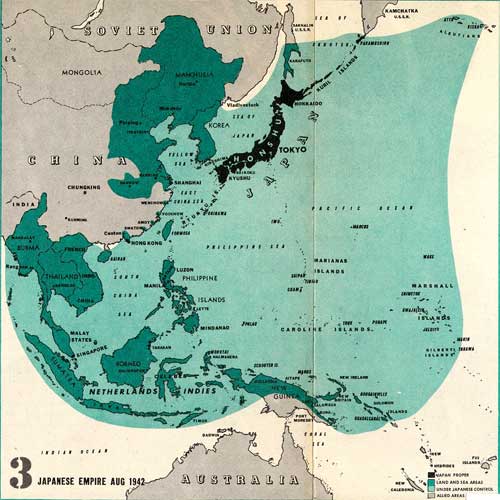 |
JAPAN 531
Recent Japanese Colonial Studies
Professor Ted Mack
MW 3:30-5:20 SAV 141
The seminar will examine recent English-language scholarship on the relationship between the Japanese imperial project and culture, with a non-exclusive focus on literary studies. All the selected texts have been published in the last decade.
In addition to ascertaining the authors' main arguments, we will also consider the methodology and presumptions of the books, attempting a meta-critique of the various ways in which the authors define the field and their object of knowledge.
|
The following assignments and schedule are tentative and subject to change.
All readings will be in English.
In the case of longer books, I may identify chapters for you to focus on.
Please note that we will not have class on October 5, 10, 14, and 19.
|
DATE |
|
|
Sept.28 |
Introduction |
|
Oct. 3 |
Lydia Liu, Translingual Practice (Stanford, 1995)
Reviews (available through JSTOR) from Modern China, Comparative Literature, Chinese Literature, Harvard Journal of Asiatic Studies, Philosophy East and West, Bulletin of the School of Oriental and African Studies, Journal of Asian Studies, and China Journal. |
 |
17 |
Louise Young, Japan's Total Empire (California, 1999)
Reviews (available through JSTOR) from Social History, Journal of Interdisciplinary History, Pacific Affairs, Monumenta Nipponica, Journal of Asian Studies, American Historical Review, International History Review, Modern Asian Studies, and Journal of Japanese Studies. |
 |
24 |
Shu-mei Shih, The Lure of the Modern (California, 2001)
Reviews (available through JSTOR) from South Central Review, China Journal, Journal of Asian Studies, American Historical Review, and Chinese Literature. |
 |
|
Leo T.S. Ching, Becoming "Japanese": Colonial Taiwan and the Politics of Identity Formation (California, 2001)
Reviews (available through JSTOR) from American Historical Review, China Journal, Journal of Japanese Studies, American Ethnologist, International History Review, Chinese Literature, and Journal of Asian Studies. |
 |
|
Faye Yuan Kleeman, Under an Imperial Sun (Hawaii, 2003)
Reviews (available through JSTOR) from Japanese Language and Literature, Monumenta Nipponica, and Pacific Affairs. |
 |
Nov. 2 |
First Reviews Due |
|
|
Norman Smith, Resisting Manchukuo (UBC, 2007)
Review (available through Project MUSE) from the University of Toronto Quarterly. |
 |
9 |
|
|
|
Karen Laura Thornber, Empire of Texts in Motion (Harvard, 2009)
Reviews (available through Project MUSE) from the Harvard Journal of Asiatic Studies and Comparative Literature Studies. |
 |
16 |
|
|
21 |
Kimberly T. Kono, Romance, Family, and Nation in Japanese Colonial Literature (Palgrave, 2010) |
 |
|
|
|
28 |
Robert Tierney, Tropics of Savagery (California, 2010) |
 |
|
|
|
|
Mark Driscoll, Absolute Erotic, Absolute Grotesque (Duke, 2010)
Reviews available through Monumenta Nipponica, Elevate Difference, and American Historical Review. |
 |
7 |
|
|
|
Second Reviews Due |
|
Texts may be purchased, but they will be on reserve at the East Asian Library and are available by request through SUMMIT. |
|
Johns Hopkins Guide to Literary Theory and Criticism
(Off-campus link)
The online guide contains more than 240 alphabetically arranged entries on critics and theorists, critical schools and movements, and the critical and theoretical innovations of specific countries and historical periods. |
 |
PARTICIPATION: Students should be prepared to explain or respond to any portion of the assigned reading. One student will be assigned to lead each meeting's discussion. Since participation is a vital aspect of the class, attendance is required at all sessions. Unexcused absences will affect one's participation grade.
PAPER: Students will write two book reviews. They are to be a maximum of 1000 words each. We will discuss everyone's first review in class.
GRADING: Your final grades will consider your presentations and participation (60%) and your paper (40%). Though the quality of your work is central to your grade, evaluations of that quality will take into consideration individual skills. Effort will be rewarded.
STUDY GROUPS: I encourage students to meet outside of class to discuss the texts and problems they have encountered in reading those texts.
CHEATING AND PLAGIARISM: The presentation of another's words and ideas as one's own is a serious offense; violations will be dealt with according to the University codes of conduct, which stipulate sanctions up to and including expulsion.
ACADEMIC ACCOMMODATIONS: I will do everything I can to accommodate students with particular needs. To request such an accommodation, please contact Disabled Student Services, 448 Schmitz, (206) 543-8924 (V/TTY). If you have a letter from Disabled Student Services indicating that you require such accommodation, we can discuss ways to meet those needs.
Page last updated on
September 30, 2011











